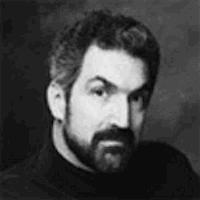| |
Israel's Best Weapon?
By Daniel Pipes
July 15, 2003
MIDDLE Easterners were widely puzzled in early 1994 when some leading American politicians, including Sen. Jesse Helms (R-N.C.) and Rep. Newt Gingrich (R-Ga.), forwarded more assertive, tougher positions vis-à-vis the Palestinians than did the government of Israel. They were, for example, more reluctant than Jerusalem to let U.S. funds go to the PLO and they displayed more eagerness to move the U.S. embassy from Tel Aviv to Jerusalem.
One Arabic newspaper, Ash-Sharq al-Awsat, captured the general bafflement when it observed that Likud, Israel's more nationalist party, had "lost in Israel but it still rules supreme in Washington."
The same pattern is again visible these days, as Christian leaders such as Gary Bauer, Jerry Falwell and Richard Land more vocally oppose the "road map" for Palestinian-Israeli diplomacy than nearly all their Jewish counterparts. But this bold Christian solidarity with Israel should not be surprising, as it manifests a Christian form of Zionism that is nearly two centuries old.
Christian support for the creation of a Jewish state originated in England, becoming a significant movement in the Victorian period. In 1840, the British foreign secretary, Lord Palmerston, "strongly" recommended that the Ottoman government then ruling Palestine "hold out every just encouragement to the Jews of Europe to return to Palestine." Lord Shaftesbury in 1853 coined the phrase "A land without a people for a people without a land."
George Eliot put these ideas in novel form with "Daniel Deronda" in 1876. In 1891, Sir George Adam Smith wrote in his authoritative "Historical Geography of the Holy Land" that the Ottomans had to be pushed out of Palestine and replaced by the Jews, "who have given to Palestine everything it has ever had of value to the world."
That same year, 1891, saw perhaps the greatest early Christian support in the United States for a Jewish state - the "Blackstone Memorial," a petition that carried the signatures of 413 prominentAmericans, including the chief justice of the Supreme Court, the speaker of the House, the greatest industrialists of the age (Rockefeller, Morgan, McCormick), famous clergymen, writers and journalists.
Addressed to the president of the United States, Benjamin Harrison, and the secretary of state, James G. Blaine, the memorial asked them to "use their good offices and influence . . . to secure the holding at an early date of an international conference to consider the condition of the Israelites and their claims to Palestine as their ancient home." According to one historian, Paul Charles Merkley, the Blackstone Memorial had the effect of "firmly planting in many minds" the "notion of American sponsorship of a Jewish return to Palestine."
The Balfour Declaration of November 1917, whereby the British government announced that it favored "the establishment in Palestine of a national home for the Jewish people," was perhaps the single most important act premised in Christian Zionism. Harry S. Truman's recognition of Israel, against the nearly total opposition of his administration, was probably second. His biographer, Michael T. Benson, finds that Truman's pro-Israel outlook "was based primarily on humanitarian, moral, and sentimental grounds, many of which were an outgrowth of the president's religious upbringing and his familiarity with the Bible." (Truman's just-discovered diary, with its petulant remarks about Jews, makes his Zionist stance the more noteworthy.)
The media has recently focused on Christian Zionism as though it were something new ("How Israel Became a Favorite Cause of the Conservative Christian Right" runs a typical title, this one a front-page article in The Wall Street Journal). The real story is how Christian Zionists are increasingly the bedrock of Israel's support in the United States, more solidly pro-Israel and more robustly Zionist than many in the Jewish community.
To those who wonder why Washington follows policies so different from the European states, a large part of the answer these days has to do with the clout of Christian Zionists, who are especially powerful when a conservative Republican like George W. Bush is president. (In contrast, Christian Zionism has nearly died out in Great Britain.)
One anti-Israel writer, Grace Halsell, recognizes this fact and deems Christian Zionists a "more dangerous" influence in Washington than are the Jewish Zionists. Put positively: other than the Israel Defense Forces, America's Christian Zionists may be the Jewish state's ultimate strategic asset.
Daniel Pipes (http://www.DanielPipes.org) is director of the Middle East Forum and author of "Militant Islam Reaches America."
Comment on this article using the "Post Reply" button.

|
|











